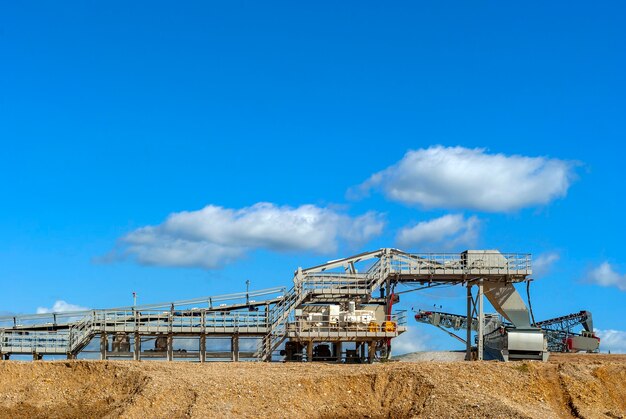Zambia is one of Africa’s largest copper producers, and mining plays a vital role in the country’s economy. The mining sector not only generates substantial revenue for the government but also provides employment and infrastructure development in various regions. Here are five major mining towns in Zambia and their economic impact:
1. Kitwe
Kitwe, located in the Copperbelt Province, is one of Zambia’s largest mining towns. It serves as a hub for the copper mining industry and has a rich history dating back to the early 20th century.
Economic Impact:
- Copper Production: Kitwe is home to several significant mining companies, including Mopani Copper Mines, which contributes significantly to national copper production.
- Employment Opportunities: The mining sector in Kitwe provides thousands of jobs, supporting the livelihoods of many residents. This employment extends to various industries, including retail, transportation, and services.
- Infrastructure Development: The town has seen significant investments in infrastructure, including roads, schools, and healthcare facilities, largely funded by mining companies and government initiatives.
2. Chingola
Chingola, also in the Copperbelt Province, is another key mining town known for its rich copper deposits. The town is closely associated with the operations of the Konkola Copper Mines (KCM).
Economic Impact:
- Local Economy: Chingola’s economy heavily relies on mining activities, with KCM being one of the largest employers in the region. The company’s operations provide direct and indirect employment opportunities.
- Support Services: The presence of mining companies has led to the development of various support services, including logistics, maintenance, and supply chain management, boosting the local economy.
- Community Development: Mining companies in Chingola invest in community development projects, including education and health services, enhancing the quality of life for residents.
3. Mufulira
Mufulira, also located in the Copperbelt Province, has a rich mining history and is known for its copper smelting activities. The town is home to Mopani Copper Mines’ smelter and refinery.
Economic Impact:
- Contribution to National Revenue: Mufulira’s mining operations are a significant contributor to Zambia’s national revenue through taxes and royalties paid by mining companies.
- Employment Creation: The smelting and refining processes provide numerous jobs, directly supporting local families and contributing to the town’s economic stability.
- Infrastructure Improvement: The mining industry has spurred infrastructure development, including improved roads, schools, and healthcare facilities, benefiting the entire community.
4. Kalulushi
Kalulushi is a small mining town in the Copperbelt Province that has been historically linked to copper mining operations. The town has undergone various transformations, especially with the establishment of new mining ventures.
Economic Impact:
- Mining Investments: Kalulushi has attracted investments in mining, leading to increased production and job creation. New companies have emerged, diversifying the local economy.
- Local Entrepreneurship: The growth of the mining sector has spurred entrepreneurship, with local businesses providing goods and services to support mining operations.
- Community Programs: Mining companies in Kalulushi often engage in corporate social responsibility initiatives, investing in education, health, and infrastructure projects.
5. Lusaka
While Lusaka is the capital city of Zambia and not a traditional mining town, it serves as a significant hub for the mining sector, hosting various mining companies and related industries.
Economic Impact:
- Headquarters of Mining Companies: Many mining companies, including large multinationals, have their headquarters in Lusaka, facilitating strategic decision-making and management.
- Economic Diversification: The presence of the mining sector in Lusaka contributes to the city’s economic diversification, with a range of support services and industries emerging to cater to the needs of the mining sector.
- Government Revenue: Lusaka, as the capital, plays a crucial role in collecting taxes and royalties from mining activities, which fund government services and infrastructure projects across the country.
The mining towns of Zambia play a crucial role in the country’s economic landscape. Their contributions extend beyond mineral extraction, providing employment, supporting local businesses, and driving infrastructure development. As Zambia continues to navigate challenges in the mining sector, sustainable practices and community engagement will be vital for ensuring that these towns continue to thrive and contribute to national development.






